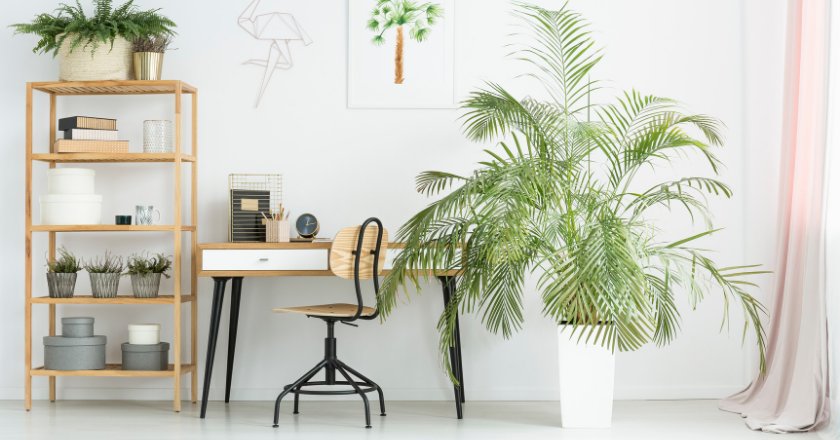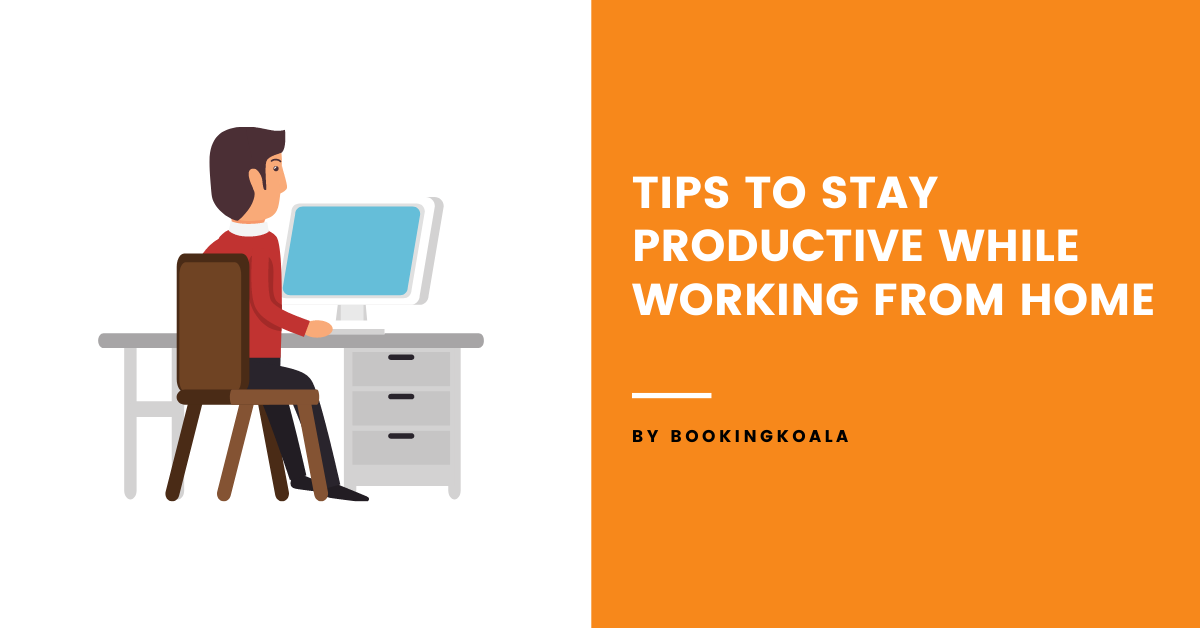Not everyone finds it easy to work from home. While, at first glance, the WFH trend seems like a generous company perk, some people find it difficult to get things done when they are all by themselves at home. They tend to procrastinate without a boss to provide regular reminders and encouragement. They become easily distracted by the temptations that are all around them in their house or apartment (Netflix marathons! Afternoon naps! One more snack from the kitchen!). They may have difficulty ending the workday, resulting in 3 am emails and diminishing returns in their work quality.
If any of this describes you, read on for tips and tricks to help you stay as productive as possible from your home office.
Create a Designated Workspace
One of the most important tips to increase your WFH productivity is to make sure you have a place that is dedicated to working. The best option, of course, is a room that is used only as an office, allowing you to stay focused on your job during the day but close the door and stay away from work at night. That isn’t possible for everyone. If you are using a corner of your bedroom, dining room table, or any other mixed-use space, the key is to do all of your job-related tasks at your designated workspace.
Set up a desk or table with a sturdy chair that will allow you to work comfortably. Ensure that only the items you need, including your computer or laptop, phone, and appropriate files and office supplies, are in your work area. Clear everything else away.
There are a couple of reasons why creating a designated workspace is important. First, it allows you to associate a place with a work frame of mind, which allows you to be more focused on company matters when you at your workplace, and more relaxed when you are in other places in your home. Second, it allows you to concentrate your efforts on keeping just a specific area tidy and organized, rather than making you worry about the state of the entire house. Why is it a good idea to have a neat and orderly workspace? Studies show that clutter interferes with your ability to process information, plus staying organized saves you time because you can always easily find what you need. Plus, these days, a clean space is better for those inevitable Zoom and FaceTime meetings–you don’t want to be the one with embarrassing personal items in the background!

Dress the Part
Just like having a separate place to do your work provides valuable cues about when it is time to work and when it is time to relax, having a work outfit helps separate company time from personal time. It isn’t necessary to put on a suit, but it does help get out of your pajamas. The key is to be comfortable but professional in your appearance. Even if you are the CEO of the company, you do not have to go all out on your appearance as long as you follow in the core beliefs and values of the company.
At the very least, make sure you do the basics that will help you distinguish a weekday from a Saturday morning on the couch. For example, take a shower and go through at least part of your usual go-to-the-office grooming routine. For men, that might mean shaving every other day instead of every day. For women, that might mean mascara and lip gloss instead of a full face of make-up. Even if you don’t do everything you used to do before heading out of the house, do some of it. Not only will you look better for those aforementioned Zoom sessions, but you’ll feel better, too.
The same goes for your clothing. Save the sweats and slippers for when you are truly on your own time. Wear fresh, clean clothes each day. They may not see you, but your clients and colleagues will hear the confidence in your voice on conference calls, and your attitude will be reflected in all of your emails and other work. When you are dressed professionally, it’s easier to act professionally.

Keep Things Clean to Stay Productive
As mentioned above, it’s important to keep your workspace clean. Dirt and clutter provide distractions that keep you from being productive. If your space is messy and disorganized, you will waste time trying to find things. You’ll also lose your focus more often since there will be extra stimuli in your line of vision, making it harder for your brain to stay on task.
So devise a system that allows everything you need for work to have a specific place. Put things away when you are done with them. Make sure that all surfaces are regularly wiped down with a cleanser that will prevent the spread of germs–because getting sick interferes with productivity, too.
Define Your Work Hours
This may sound counterintuitive, but if you limit the hours you work, chances are you’ll actually get more done. That’s because many people find that if they have 24 hours to complete a high-priority project, it takes… 24 hours. Some of that might be because they procrastinate, perhaps checking email or social media more often, or working on other projects that may be less important but seem easier or more fun before focusing on the high-priority project. Some of that might be because they add steps to the project that isn’t really necessary, steps that they would naturally eliminate if they had less time. Whatever the reason, for most people, having a series of short deadlines leads to brief bursts of focused, highly productive work.
That’s why, even if your hours are flexible, you should establish a defined routine for each workday. Getting started at the same time, taking regular breaks (including a reasonably long lunch break rather than yogurt at your desk), and wrapping up at a specific hour will help you make the most of your time “on the clock.” Working longer hours rarely leads to getting more done in the long term because, as studies by efficiency experts have proven, again and again, the law of diminishing returns means that “proportional increases in working hours are shown to result in smaller proportional increases in production, and the benefits in the output of long working hours may not offset the consequences of long hours for the health and quality of life of workers.”
Once you end your workday, give yourself time off to relax. It’s best if you really shift gears, devoting time to your family, hobbies, or other non-work interests. Doing so will allow you to return to work the next day (even if that means just sitting at the kitchen table) refreshed, recharged, and ready to be your best, most productive self.
Hire Some Help
One of the best ways to stay productive when you work from home is to hire some help to keep your workspace (and the rest of your home) clean. It may seem indulgent to hire a maid or housekeeping service but think of it as investing in yourself, in your career, and your future.
As noted above, having a tidy and organized home office can help you become more productive. Chances are, you already hire experts in other fields–lawyers and accountants, for example–because they have specific skills and experience that make them well suited for certain kinds of work. The same can be said for house cleaning: expert maids can clean your house more efficiently and effectively than you can because they are especially proficient in keeping things clean and tidy.
Here’s another way to look at it:
- When you work at home, you are probably saving money by not commuting into a corporate office.
- You don’t have to spend money to buy lunch at a restaurant or expensive take-out place every day.
- You likely are even spending less on work clothes than you would if you had to go into the office.
So why not use a portion of those savings to keep your environment pleasant and sparkling clean?

Finally, real productivity increases come from starting each workday with a positive, energetic mindset. When you are happy and excited to do your work, it shows. Creating a defined workspace, dressing the part, staying neat and organized, and taking time off work are important. But what you do with your time off matters too. So rather than spending your off-hours doing tedious housework, why not spend it doing something you love? If you outsource your cleaning, you’ll have time to pursue your real interests. And that will help you be more productive when you get back to work.
